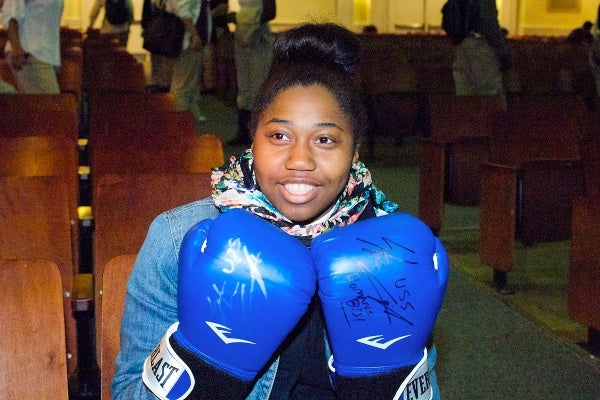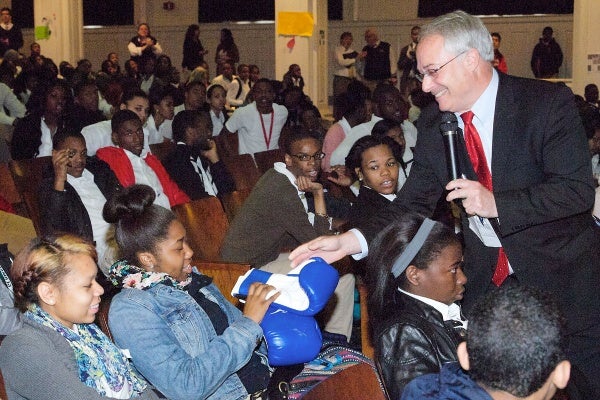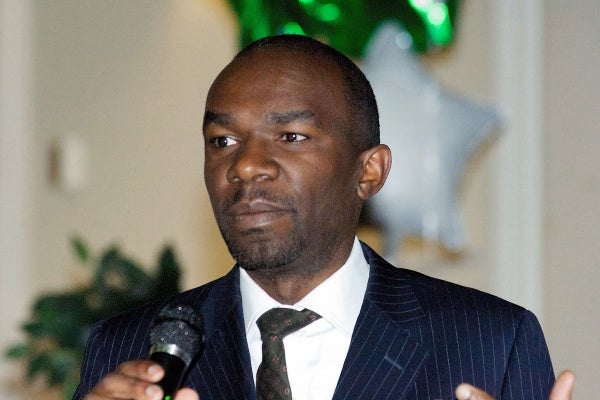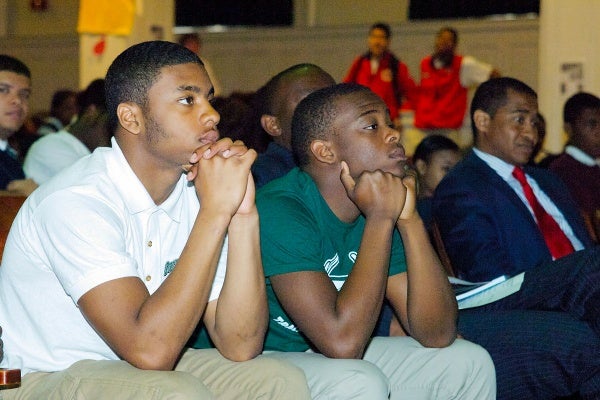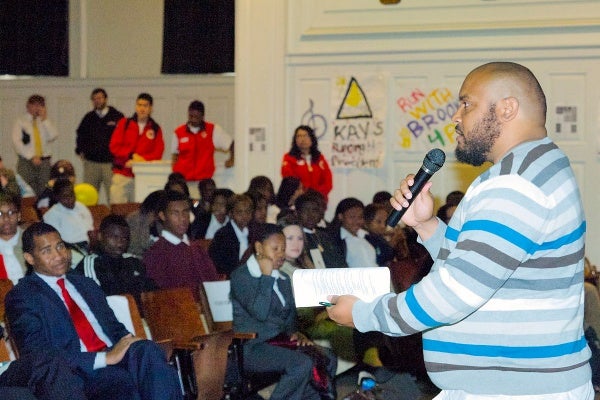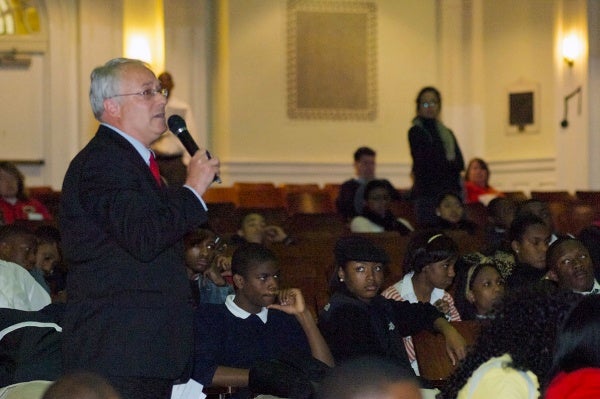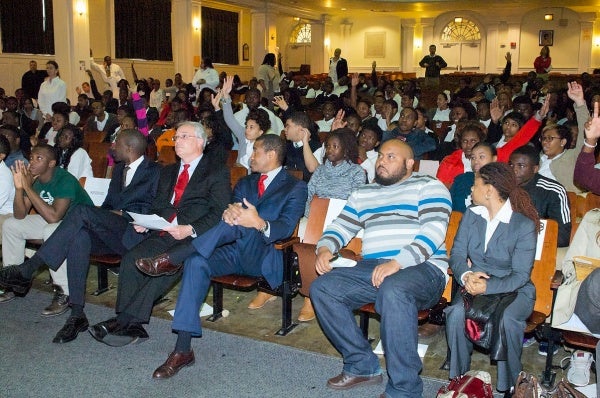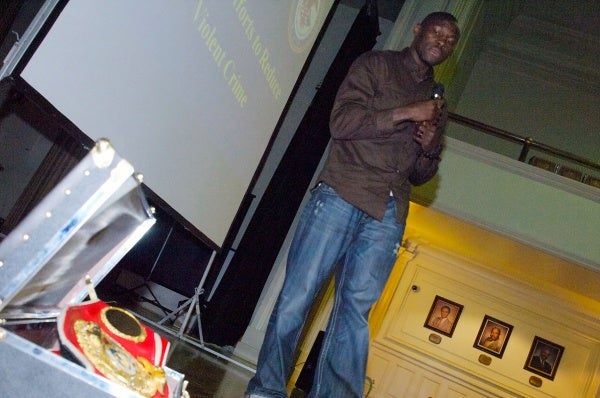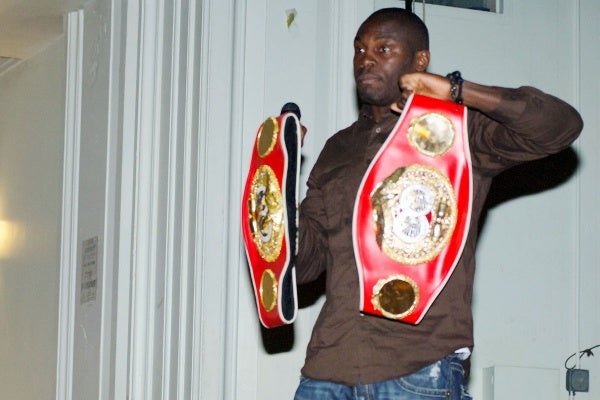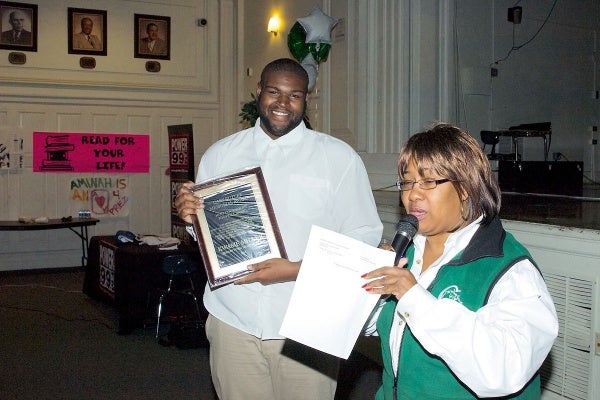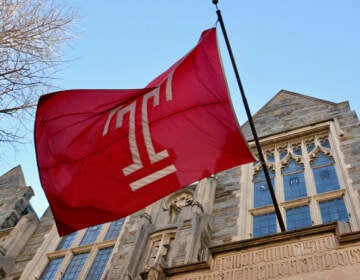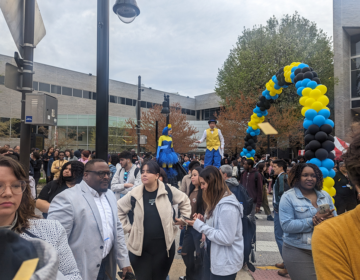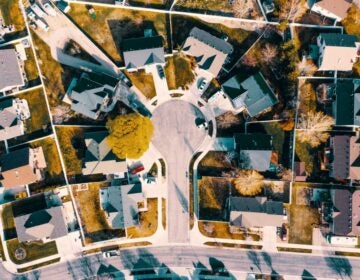Desperation, hope mingle at Germantown High anti-violence assembly
The U.S. Attorney’s Office “violence-prevention efforts” presentation started Monday morning with a call-and-response geared toward the seniors and freshmen assembled in the Germantown High School auditorium.
“If you believe there’s hope in decreasing violence, please stand up.” A spattering of students stood.
“If you think you can do something to decrease crime in your neighborhood, please stand up.” Just a few left their seats.
“If you think something can be done to stop bullying. … If you believe there are always negative consequences to violence.” The same.
“If you would report a crime if you saw one, please stand up.” That time, the two or three of more than 150 who stood were greeted by some booing, and a call of “Rat.”
The final line was, “If a family member was attacked and you would tell police who did it, please stand up.”
The fact that that didn’t force even a quarter of the students up out of their seats told U.S. Attorney Zane David Memeger, GHS alum and two-time cruiserweight boxing world champion Steven Cunningham and other speakers that getting their message to resonate would not be an easy task.
Make good decisions
The U.S. Attorney’s Office billed the event as one that focused on “the magnitude of firearms violence in Philadelphia, violence prevention, bullying prevention, life choices and the consequences for violating the law.”
By sticking to that agenda with speeches, videos, statistics and graphics, they quickly learned that some in the crowd didn’t hold out much hope that their neighborhoods, and lives, would get any safer any time soon.
Memeger spoke about how 14-plus years of prosecutorial experience gave him insight into what happens when people make bad choices.
“My goal is to help you avoid making the type of decisions that ultimately mean I may have to go in and investigate and prosecute,” he said from the auditorium stage. “You feel that there is nothing you can do about the violence in your community? Success in the community starts with you. We have to say ‘no more, we will not tolerate this anymore.'”
Memeger then introduced Cunningham, a boxing champion who graduated GHS in 1994, who urged the students to “leave the fighting to the professionals,” told them that “bullies are cowards” and that “if you’re getting bullied, tell someone.”
“The violence in this city is ridiculous,” said Cunningham.
After recounting the story of a murdered friend, he added a question to the call-and-response list. When he asked those who know someone who’d gotten killed to stand up, more than half of the students did.
More deaths in Philly than Afghanistan
Executive Assistant U.S. Attorney Robert K. Reed relied on statistics to make his case. Namely, the 3,722 homicides occurring in Philadelphia between 2001 and 2011, the 104 thus far this year and the 1,827 Americans killed in post-9/11 Afghanistan.
“Many of you don’t even know where that is,” he said.
Reed showed maps pinpointing where Philadelphia homicides and shootings occurred and video interviews with a third-time stricken lifer, a man who’d been shot, Eagles quarterback Michael Vick and a Harvard-bound St. Joe’s Prep student who was shot and left in a wheelchair in 1991, a tragedy which resulted in his father committing suicide.
He used quotes from “To Kill A Mockingbird” to espouse the merits of empathy.
“It’s hard out here,” said one student.
“The fact is that you can come out here and talk about all this stuff, but 9 out of 10 of the people in the auditorium aren’t going to change when you leave,” added another. “They’re not going to listen to you. Even if we do change, we could still go outside and get killed.”
It was at that point that Badlands-raised Assistant U.S. Attorney Sozi Tulante took the mic and explained how he went from a kid who saw the “lookout boy to corner boy to having a couple corners” drug-dealing track as the best career path to Harvard Law School.
“It all goes back to what can you do to make a change,” Reed concluded.
Understanding their hesitance
After the 90-minute presentation, Memeger was asked what he made of the students’ collective standoffishness.
“I’m not surprised by it. This is the community where they live,” he said, of a neighborhood which was covered by a lot of bullet points on the murder maps. “The school system is looked down upon, funding is being cut for programs, they feel like they’re being left out. But, there needs to be an effort to tell them that they’ll have opportunities, that they can make the right decisions in life.”
Cunningham – who walked the same hallways and sat in the same classrooms as the students – was taken aback by it.
“It’s just crazy for a kid to be surrounded by that much hopelessness. It’s too young for that to happen,” he said, “but I’ve felt like that before, I know what that feels like. I probably wouldn’t have been a boxer if I knew about all the jobs out there, like criminal science, CSI, but those options aren’t always presented to us out here.”
WHYY is your source for fact-based, in-depth journalism and information. As a nonprofit organization, we rely on financial support from readers like you. Please give today.


